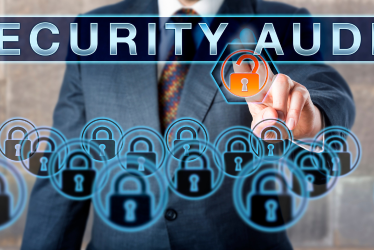Advertisements
What is a computer security audit?
An IT security audit is a comprehensive process that evaluates the protection of an organization's technology systems.
Its main objective is to identify vulnerabilities, ensure compliance with security policies, and propose improvements to prevent potential cyber threats.
Why is it crucial to perform an IT security audit?

In a world where cyberattacks are becoming increasingly sophisticated, cybersecurity audits have become an essential tool for:
- Detect vulnerabilities: Identify weak points in systems and networks.
- Prevent attacks: Anticipate potential threats and prevent security breaches.
- Comply with regulations: Ensure compliance with data protection laws and regulations.
- Improve confidence: Demonstrate to customers and partners the commitment to information security.
Types of computer security audits
There are various approaches to conducting an IT security audit, depending on the organization's objectives and needs.
1. Internal audit
Performed by the company's own staff, it allows for a continuous and detailed evaluation of internal systems.
Advertisements
2. External audit
Conducted by independent third parties, it offers an objective and expert perspective on the organization's security.
3. Forensic audit
It focuses on investigating past security incidents, gathering evidence to understand how a breach occurred and prevent future occurrences.
4. Ethical hacking or penetration testing
Simulates real-life attacks to identify and fix vulnerabilities before they're exploited by cybercriminals.
5. Compliance audit
Verify that the organization complies with international regulations and standards, such as ISO 27001 or the National Security Scheme.
Phases of an IT security audit
An effective audit follows a series of well-defined stages
1. Planning
The objectives, scope and resources required for the audit are established.
2. Gathering information
Data is collected on technological infrastructure, security policies, and potential threats.
3. Risk analysis
Potential vulnerabilities and risks are identified and assessed.
4. Tests and evaluation
Technical tests are carried out to verify the effectiveness of the implemented security measures.
5. Results report
Findings are documented, recommendations are proposed, and action plans are established to improve safety.
Benefits of an IT security audit
Implementing IT security audits offers multiple advantages:
- Risk reduction: Reduces the likelihood of cyberattacks.
- Resource optimization: Identify areas where processes can be improved and costs reduced.
- Continuous improvement: Promotes a culture of security and constant adaptation to new threats.
- Competitive advantage: Demonstrates to customers and partners a strong commitment to information protection.
Key tools and standards in security audits
To conduct effective audits, it is essential to rely on recognized tools and frameworks:
- ISO/IEC 27001: International standard for information security management systems.
- COBIT: Framework for the management and governance of information technologies.
- NIST: Provides guidelines and best practices in cybersecurity.
- OWASP: Resources to improve web application security.
Who should consider an IT security audit?
Every organization that handles digital information should consider conducting security audits, especially:
- Companies with an online presence: Websites, online stores, digital platforms.
- Financial institutions: Banks, insurers, fintechs.
- Government entities: Public bodies and administrations.
- Health companies: Hospitals, clinics, laboratories.
- Technology service providers: Software, hosting, and telecommunications companies.
Trends in IT security auditing for 2025
The cybersecurity landscape is constantly evolving, and IT security audits must adapt to stay relevant. Here are the most notable trends for 2025:
1. Automation and artificial intelligence (AI)
Manual audits are no longer sufficient to address advanced threats. AI-powered tools enable:
Analyze large volumes of data in record time.
Detect anomalous patterns that could go unnoticed.
Automate penetration testing and attack simulations.
For example, platforms like Darktrace use AI to identify suspicious behavior within enterprise networks.
2. Audits in cloud environments
With mass migration to the cloud, audits should assess not only on-premises systems, but also:
- Cloud service configurations.
- Regulatory compliance in multicloud environments.
- Protection of data stored and transmitted on platforms such as AWS, Azure, and Google Cloud.
It is estimated that by 2025, more than 80% of global enterprises will have critical workloads in the cloud (gartner.com).
3. ESG-aligned audits (Environmental, Social, Governance)
IT security is no longer just a technical issue; it's also linked to corporate responsibility. Modern audits include:
Assessments on the social and ethical impact of data protection.
Compliance with privacy regulations such as GDPR or CCPA.
Responsible practices in the management of security incidents and breaches.
Shocking statistics on audits and cybersecurity
To understand the importance of IT security audits, let's review some recent data:
43% of cyberattacks target small and medium-sized businesses.
Only 14% of these companies has a formal incident response plan.
Organizations that implement regular audits reduce the average cost of a security breach by up to 40% (ibm.com).
These numbers confirm that auditing is not a luxury, but an urgent necessity for companies of all sizes.
Best practices for a successful IT security audit
Here's a handy checklist to ensure your next audit is effective:
Define clear objectives: What do you want to achieve? Compliance, prevention, continuous improvement?
Involves all levels: It's not just an IT issue; management, human resources, and operational areas must be involved.
Constantly updated: Threats change rapidly; your audits must evolve too.
Hire certified experts: Look for professionals with certifications such as CISA, CISSP, or CEH.
Implement the recommendations: An audit without further action is just paper; the important thing is to implement the findings.
Real cases: when auditing made a difference
Case 1: A fintech in Latin America
Following an external audit, this company discovered critical vulnerabilities in its banking API. Based on the recommendations, they implemented security patches that prevented a potential data theft from more than 100,000 users.
Case 2: Digitalized Hospital
A clinic with a history of ransomware attacks conducted a forensic audit. They discovered that the entry vector was outdated software on their servers. After updating and implementing controls, they were able to reduce intrusion attempts by 70%.
These examples show the real impact of investing in IT security audits.
The most common mistakes in a computer security audit (and how to avoid them!)
Even organizations that already conduct audits can make mistakes that reduce their effectiveness. Here are the most common ones:
1. Lack of management support
Without real management commitment, audit findings are left in the background. It is key for leaders to understand that Investing in security is not an expense, it is long-term protection..
2. Poorly defined scope
If you don't clearly define which areas and systems will be audited, you risk leaving critical areas untested. Always establish a specific and measurable scope from the beginning.
3. Not documenting correctly
Every vulnerability found, every recommendation, every test should be detailed. This is not only useful for tracking, but also protects the company legally in the case of regulatory audits.
4. Not updating the controls
Technology changes rapidly. An audit conducted six months ago could already be outdated if the controls in place are not continually reviewed.
5. Ignoring staff training
You can have the best firewalls in the world, but if your employees can't recognize phishing attacks, everything can fall apart. Security is both technological and human.
Global IT security and regulatory audit
More and more countries are requiring mandatory cybersecurity standards. Here are some key examples:
Europe (GDPR): Personal data protection, with multi-million-dollar fines for non-compliance.
United States (CCPA): Strict rules for companies handling California consumer data.
Latin America: Regulations such as the Personal Data Protection Law (Argentina), the Federal Data Protection Law (Mexico) and the LGPD (Brazil).
Audits help ensure that your company Comply with these regulations and avoid penalties.
How to choose a good IT security audit provider?
Here are some practical tips:
Check out their experience: Do you have proven cases in your industry?
Ask for certifications: Look for firms that have recognized international certifications.
See references: Talk to current customers to learn about their experience.
Evaluate costs and benefits: The most expensive isn't always the best; look for a balance between price, quality, and results.
Investing in a good auditor is invest in peace of mind.
How often should you perform a computer security audit?
The frequency depends on the size and type of your organization, but as a general guideline:
Small businesses: At least once a year.
Medium and large companies: Every six months, especially if they handle sensitive data.
After major changes: Such as cloud migrations, mergers, acquisitions, or the launch of new digital services.
Remember: cybercrime doesn't take vacations, and neither should you!
Make cybersecurity your competitive advantage!
Today, customers value companies that protect their data. A good IT security audit not only protects you from threats:
- Improve your reputation.
- Market confidence increases.
- It differentiates you from less prepared competitors.
Take the next step in protecting your business!
If you've made it this far, you already know that the computer security audit It is not optional: it is the armor your organization needs to survive in the digital age.
Do you want to find out what risks your company faces right now?
Consult an expert and start building a solid safety plan that will allow you to grow without fear.
👉 Contact us today and transform your business security into a true competitive advantage!



